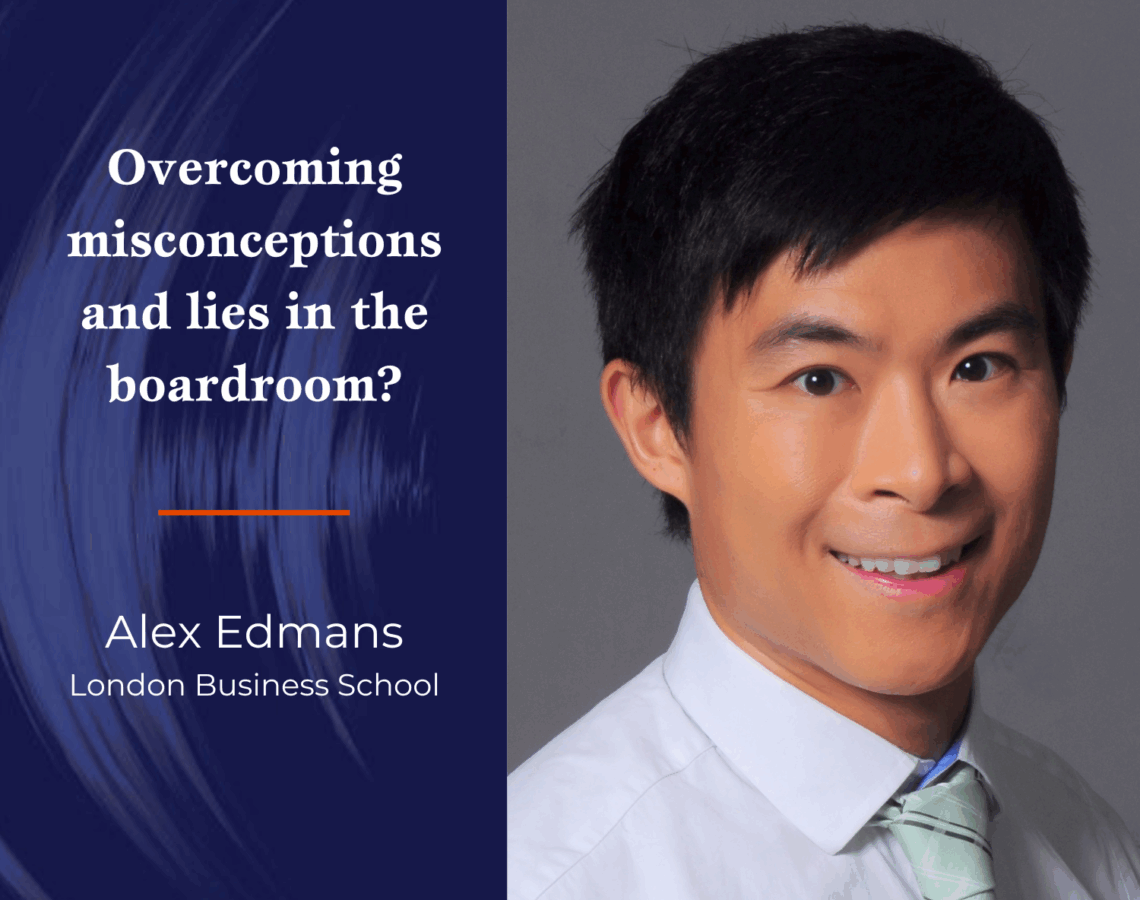Overcoming Misconceptions and Lies in the Boardroom

Why critical thinking and dissent matter more than ever
In a world of mounting pressures, it’s tempting for boards to reach for simplified narratives and consensus. But as Professor Alex Edmonds of London Business School reminds us in this thought-provoking episode, the boardroom’s greatest asset isn’t uniform agreement—it’s the courage to confront complexity, embrace dissent, and think critically.
“Rather than making broad claims as to whether sustainability works or doesn’t, what I try to do is be more granular and look at the specific sustainability dimensions that pay off.”
Boards often gravitate to tidy truths, particularly around hot topics like ESG and diversity. But Edmonds urges us to resist such oversimplification. While sustainability and DEI are essential, the evidence linking them to financial performance is far more nuanced than many assume.
“If you see a study that you really want to be true… ask yourself what if the study found the opposite? How would I take it apart?”
Even well-meaning directors fall prey to confirmation bias. We believe what we want to believe—especially when it aligns with our values. But Edmonds warns that this intellectual complacency can lead boards to overlook alternative explanations and nuanced truths.
“It’s simple but not easy. We know where we want to get to—but putting it into practice is challenging.”
In times of crisis, the impulse to avoid conflict grows stronger. Yet that’s when divergent viewpoints are most valuable. Chairs must be deliberate in inviting and protecting dissenting voices—both in meetings and through subtle gestures, like placing their own opinion last in an email.
“Academic research does matter for practical board members… It helps nail down causation, not just correlation.”
Critical thinking isn’t a luxury. It’s a strategic necessity. Boards must go beyond slogans and trends to uncover what really drives performance. That means turning to academically rigorous research and interrogating evidence—even when it’s inconvenient.
The three top takeaways for effective boards from our conversation are:
- Academic research is a critical resource – It provides clarity amid noise and uncovers true performance drivers.
- Challenge what you want to believe – True commitment to ESG and DEI requires the courage to test assumptions.
- Reward dissent – Boards that encourage diverse opinions will navigate uncertainty with sharper insight.
Remember to subscribe and never miss an episode of the Better Boards Podcast Series. It’s available on Apple, Spotify, or Google.
To find out how you can participate in the Better Boards Podcast Series or for more information on Better Boards’ solutions, please email us at info@better-boards.com.



